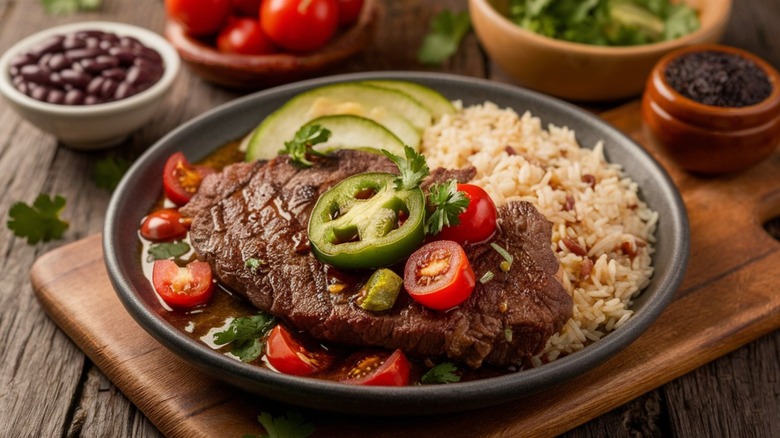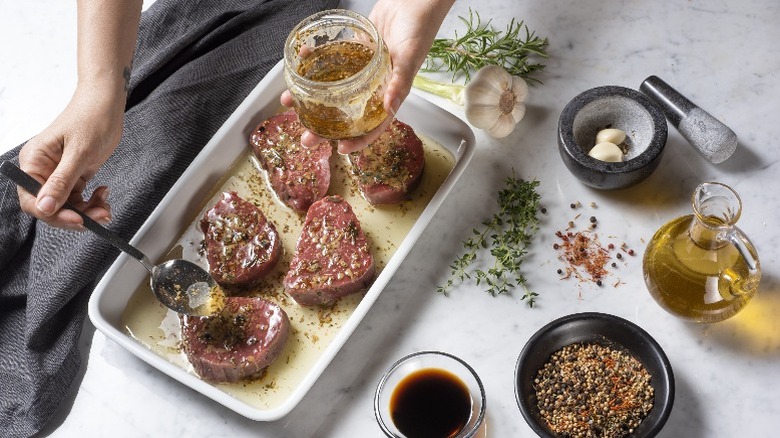Why Steak Marinades At Mexican Restaurants Taste So Much Better Than Yours
Mexican marinades combine bold and vibrant flavors to transform steak into the show-stopping centerpiece of your dinner table. Key ingredients often include citrus juices, chiles, local spices, vinegar, or even beer. While there's nothing inherently peculiar about Mexican marinades compared to those of other countries and cultures, Mexican marinades tend to have a memorable and uncommonly well-rounded result.
As with many effective marinades, acidity plays a major role. And the acid du jour in many Mexican-style steak recipes is some form of citrus. Lime and orange are common, providing a bright acidity that can punch through dark, brooding, smoky flavors while complementing, enhancing, and even mellowing rich, floral, or bitter flavors. But it also tenderizes and softens the steak, allowing itself and the other flavors to penetrate further and impart more character, making it the perfect choice for both tough and tender cuts of meat.
Balancing bright and tangy flavors with saltiness, earthy or bitter notes, and piquant chiles make a Mexican-style steak marinade stand out, elevating even the most humble cookout. So it's important to understand how to combine ingredients to achieve meaty steak perfection.
Choosing the right ingredients
Creating an exceptional Mexican-style steak marinade begins with a neutral oil and the right citrus fruit. Mexican lime (aka key lime) is prevalent in Mexico. Common American grocery store limes are fine substitutes, but lime of any kind can be a bit overpowering for steak, which is why orange is a common addition.
Historically, Mexicans were big fans of bitter orange. But they're getting harder to find, so they opt for regular orange juice along with an ingredient with bitter or sour notes, such as beer, Worcestershire or soy sauce, or just plain vinegar. Thanks to carne asada and the Mexican immigrants who brought the recipe to the U.S. during the 1900s, beer is common, but the sauces make frequent appearances since they help balance steak's natural richness while adding salt.
After that, it's just about what flavors you prefer. Aromatics like onion and garlic are common, as are chiles. And depending on what you choose, they can bring both heat and depth. Cumin is heavily associated with Mexican cooking in the U.S., and it's an option, but don't neglect warm spices like cinnamon and allspice, and fresh or grassy flavors like cilantro or Mexican oregano. As you're putting your marinade together, remember this: Mexican cuisine at an authentic restaurant is amazing, but making your favorite Mexican dishes at home can be just as delicious.

